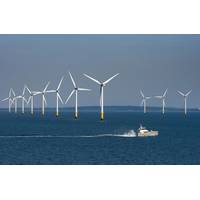Norway's Oil Spend to Fall Again in 2017
Drop mostly due to postponing decommissioning schemes.
Investment in Norway's oil and gas sector, a cornerstone of the economy, will drop next year as weak crude prices push energy companies to rein in their budgets, a national statistics agency survey showed on Wednesday.
Norway's offshore sector generates a fifth of gross domestic product and a fall in crude prices has forced energy firms to delay or cancel projects and lay off staff.
Oil and gas investments will reach 150.5 billion crowns ($18.4 billion) next year, down from a May estimate of 153.2 billion crowns, Statistics Norway said. This year they will reach 163.5 billion crowns, down from a May estimate of 165.9 billion.
Next year's drop is mainly due to firms, which have been on a cost-saving review for the past two years, mothballing projects to decommission ageing installations at offshore oil and gas fields, it said.
"Almost the entire decrease from the last survey is due to lower estimates in shutdown and removal (of platforms)," the agency said in a statement. The estimate for those costs had dropped 25 per cent since May.
An economist said the numbers pointed to a lower rate path for the central bank.
"The numbers are slightly weaker than expected," said Kari Due-Andresen, chief economist at Handelsbanken. "It looks like it is weaker than the central bank's own forecasts."
She said she did not expect Norges Bank to reduce rates at its next policy meeting on Sept. 22, but sees further cuts later.
The central bank was until recently widely expected to cut rates from the current 0.50 percent, but recent data including stronger-than-expected inflation for July suggested it might hold rates this time.
Brent crude oil currently trades at around $49 per barrel. The price has risen since the start of the year but is still down around 57 percent since June 2014.
Reporting by Ole Petter Skonnord and Camilla Knudsen











